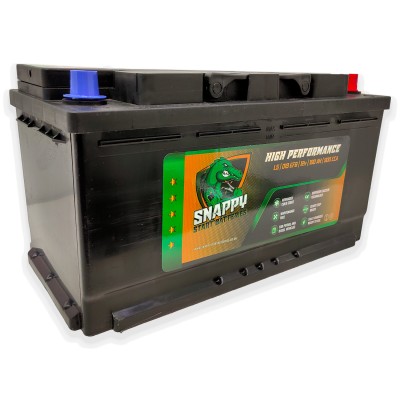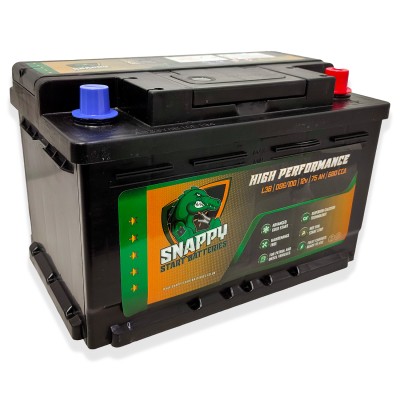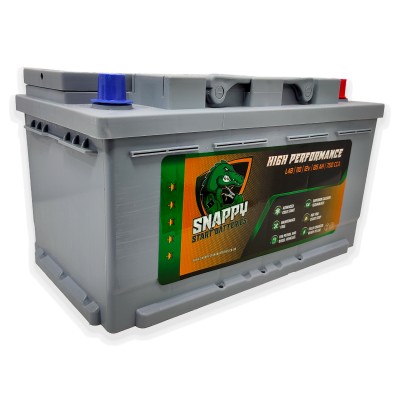 Same & Next day delivery available
Same & Next day delivery available 4-year warranty
4-year warranty Trusted by 10K+ UK drivers
Trusted by 10K+ UK drivers Same & Next day delivery available
Same & Next day delivery available 4-year warranty
4-year warranty Trusted by 10K+ UK drivers
Trusted by 10K+ UK drivers Same & Next day delivery available
Same & Next day delivery available 4-year warranty
4-year warranty Trusted by 10K+ UK drivers
Trusted by 10K+ UK drivers Same & Next day delivery available
Same & Next day delivery available 4-year warranty
4-year warranty Trusted by 10K+ UK drivers
Trusted by 10K+ UK driversSnappy Van Batteries
Did you know different vans need different types of batteries? We can guide you through finding and maintaining the perfect battery for your van.
Exploring Van Batteries
When it comes to van batteries, there are various common brands and models available in the market. Whether you are embarking on a road trip or seeking more than just a reliable power source, the price range and buying options of ultra plus, gold premium types cater to your different needs.
Types of van batteries
Moving from the wide variety of brands and models, van owners have several categories of batteries to consider for their vehicles. Among these, Ultra Plus, Gold Premium, and Bosch stand out as notable types each offering unique benefits.
- Ultra Plus car batteries are known for providing reliable power and long-lasting performance under tough conditions. They suit van owners who often travel or use their vehicle in demanding environments.
- Gold Premium batteries take reliability a step further with enhanced durability and superior starting power in all weather conditions. This makes them ideal for vans that face extreme temperatures or irregular usage patterns.
- A Bosch car battery offer cutting-edge technology with high cranking power and exceptional service life, catering well to modern vans equipped with numerous electronic gadgets and accessories.
Each type caters to different needs ensuring van owners can find the perfect match for their vehicle's demands.
How to Choose the Right Van Battery
Choosing the right van leisure battery requires considering factors such as brand, capacity, type, and construction. Using a battery finder tool can help in navigating the complexities of selecting the ideal battery for your van.
Battery Finder Tool
Easily find your new battery using an intuitive battery finder tool. Simply input your van model and specifications, and quickly browse through a range of compatible options based on brand, type, capacity, and construction.
This user-friendly tool streamlines the selection process, ensuring you choose the ideal battery to power your van for years to come. With this tool at your fingertips, finding the right van battery has never been easier.
When searching for a new van battery that meets your specific needs and budget, navigating through various brands and models can be overwhelming. Our advanced battery finder tool takes the complexity out of this task by tailoring results tailored specifically towards your requirements.
What Should You Consider?
When it comes to selecting the right van battery, there are several important categories to consider. These factors play a crucial role in ensuring that your vehicle's power needs are met effectively. Here are the key categories to ponder when choosing a van battery:
- Brand: Opt for reputable brands known for their reliability and quality, like Bosch, Ultra Plus, or Gold Premium.
- Capacity: Consider the capacity of the battery in terms of its ability to deliver power consistently over time. Higher capacity batteries may be necessary for vehicles with additional power requirements.
- Type: Choose between various types such as lead-acid, absorbed glass mat (AGM), and gel batteries based on your van's specific energy needs.
- Construction: Evaluate the construction of the battery, including its durability and resistance to vibration and harsh conditions.
It is advisable to compare these categories carefully before making a purchase, as they underpin the performance and longevity of your van's electrical system.
Importance of selecting the right battery
Choosing the right battery for your van is essential when it comes to optimal performance of your vehicle. The battery you choose needs to match the power needs of your van and ensure a consistent electrical supply on your trips. It should also prevent unnecessary strain on all of the electrical components of the vehicle while extending their lifespan.
A compatible van battery means understanding the power requirements of your vehicle and choosing the right energy source that will support all of the vehicle's essential functions.
Maintaining and Replacing Van Batteries
Maintaining and replacing van batteries can significantly impact the performance of your vehicle. To ensure longevity, a regular charging schedule and monitoring signs of wear are essential.
Lifespan and usage
Van batteries typically last between three to five years, depending on usage and maintenance. Factors like extreme temperatures, frequent short trips, or extended periods of inactivity can affect the battery's longevity.
To extend the lifespan of your van battery, it is crucial to regularly check and clean the terminals, as well as ensure that the alternator is functioning correctly. Additionally, consider investing in a smart charger to help maintain optimal charge levels during periods when your van is not in use.
How To Charge Your Battery
Although charging a battery seems pretty straightforward, there are some things to keep in mind:
- Regularly charge the battery fully to prevent sulfation, a process that leads to reduced capacity.
- Use a smart charger to avoid overcharging and damaging the battery cells.
- Follow the manufacturer's guidelines for charging voltage and current to ensure optimal performance and longevity.
- When storing the van for an extended period, consider using a trickle charger to maintain the battery's charge level.
- Clean the battery terminals and connectors regularly to prevent poor electrical connections during charging.
When Should I Replace My Battery?
It's important to be aware of the signs that indicate it's time to replace your existing battery. Here are some key indicators to look out for:
- Diminished Cranking Battery Power: If your van is struggling to start, and you notice a slow cranking sound when turning the key, it could be a sign that the battery is losing its charge.
- Warning Lights: Keep an eye on dashboard warning lights, such as the battery light or check engine light. These could signal potential issues with the battery.
- Age of the Battery: Van batteries typically have a lifespan of 3-5 years. If your battery is approaching this age range, it may be time for a replacement even if it's not showing obvious signs of failure.
- Electrical Issues: If you experience electrical problems like flickering lights or issues with power windows and locks, these could also point to a failing battery.
- Corrosion and Leakage: Check the battery terminals for any signs of corrosion or leakage. Corrosion can impede the flow of electricity, while leakage can indicate internal damage requiring replacement.
- Slow Charging: If you notice that your van's battery takes longer than usual to recharge after driving, it might be an indication that the battery is no longer holding a charge effectively.
- Strange Odors: A pungent sulfur smell coming from the engine area may suggest that the battery is overheating or releasing abnormal levels of gas, which requires immediate attention.
Remember to keep these signs in mind and consult with a professional if you suspect any issues with your van's battery, as timely replacement can prevent unexpected breakdowns.
FAQs
How many batteries does a camper van need?
A camper van typically needs at least two batteries - one for starting the engine and another to power onboard appliances.
Where are van batteries located?
Van batteries are typically located under the hood of the van, either on the van driver's side or passenger's side. In some vans, you might find them in a compartment under the floor of the vehicle or near the starter motor.
-2000x800.jpg)

MARK WATSON 19.11.2024
READ MORE >-2000x800.jpg)

MARK WATSON 17.11.2024
READ MORE >

MARK WATSON 15.11.2024
READ MORE >






















































































